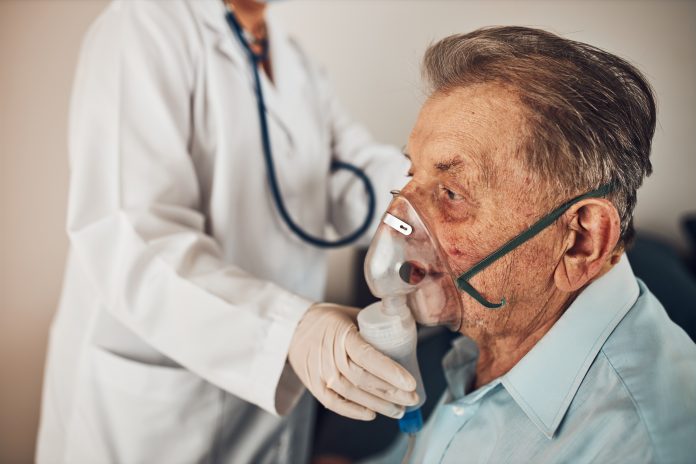The impact of COVID-19 has proven that we cannot let people with lung conditions continue to be forgotten, says Dr Alison Cook, Chair of the Taskforce for Lung Health
It is a sad fact that not only does someone in the UK die of lung disease every five minutes, but it is the poorest people in our society who are twice as likely to develop lung cancer or chronic obstructive pulmonary disease (COPD). In 2018, it was harrowing truths like these that helped to make the case for the foundation of the Taskforce for Lung Health, a collaboration of over 30 members in professional, patient and academic communities who are among the most influential voices in respiratory care. The Taskforce was formed to look at how we can improve lung health in England and change outcomes for people with lung disease, which in 2018, had seen no improvements in a decade. Now, two years after the launch of the Taskforce five year plan, COVID-19 has impacted the state of respiratory care in a way that has never been seen before.
The impact of COVID-19 on people with lung disease
Before the pandemic, 1 in 3 people waited longer than six months for a diagnosis of lung disease.1 Some lung conditions, such as idiopathic pulmonary fibrosis (IPF), have a life expectancy of three to five years, so any delays to diagnosis could have a monumental impact on a person’s ability to access timely treatment and care. The pandemic has made this issue more urgent than ever before. Analysis by the Taskforce showed that during the first lockdown alone, at least 34,780 people missed out on a referral for specialist care, treatment or diagnosis in England.2 The potential backlog is likely to have led to many people with lung disease needing to seek emergency care because they will not have had timely support to manage their condition. As data on respiratory care is patchy, it is difficult to tell the full impact on people living with lung conditions. But what we know so far, presents a deeply worrying picture of what the true cost of the pandemic, to patients living with lung disease, may look like.
In fact, according to a survey by Taskforce members, Asthma UK and the British Lung Foundation, over a third of people delayed or avoided seeking care during the first lockdown due to fears about being a ‘burden’ to the NHS, or catching COVID-19.3 By October, we saw that at least a third of people with lung conditions missed out on life changing pulmonary rehabilitation treatment as their classes were cancelled as a result of the pandemic. For years, people with lung conditions have struggled with accessing early and accurate diagnosis, appropriate treatment and care – this growing crisis is one that cannot be ignored.
We need to see urgent investment in improving lung health
The pressures that healthcare professionals and people living with lung disease have faced during the pandemic are numerous. Seeing positive developments such as the implementation of respiratory networks and the development of diagnostic hubs to support people with lung disease across the country is a sign of the remarkable progress that is possible, despite the devastating impact of the COVID-19 crisis. It is crucial that this progress continues beyond COVID-19 – there is an opportunity now, like no other, to continue to improve the state of care for people with lung disease, ditching the structures and systems that have struggled to provide what is needed for people with lung conditions for so long.
One of the biggest issues resulting from the pandemic is the stretching of specialist NHS staff and resources from services that would benefit patients with a wide range of lung diseases, to also support the new cohort of people with acute COVID-19 and Long Covid. Without a renewed commitment to expanding the workforce to meet the growing level of need, it is difficult to see how tangible progress can be made on all fronts.
When the Taskforce first published its five year plan, it was key in influencing the aims of the NHS Long Term Plan, which prioritised improving access to timely diagnosis, treatment, and care for people with lung disease. It is crucial that these commitments continue to be delivered – the lives of people with lung disease depend on it.
The Taskforce for Lung Health has published a report reflecting on the progress made two years after the launch of its five year plan. Read the report, here: https://www.blf.org.uk/taskforce/plan/two-years-on
References
(2) https://www.blf.org.uk/taskforce/get-in-touch/media/patients-needing-urgent-care-for-lung-conditions








